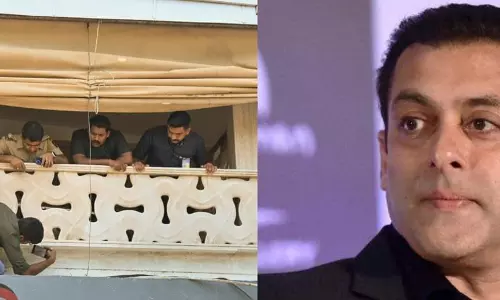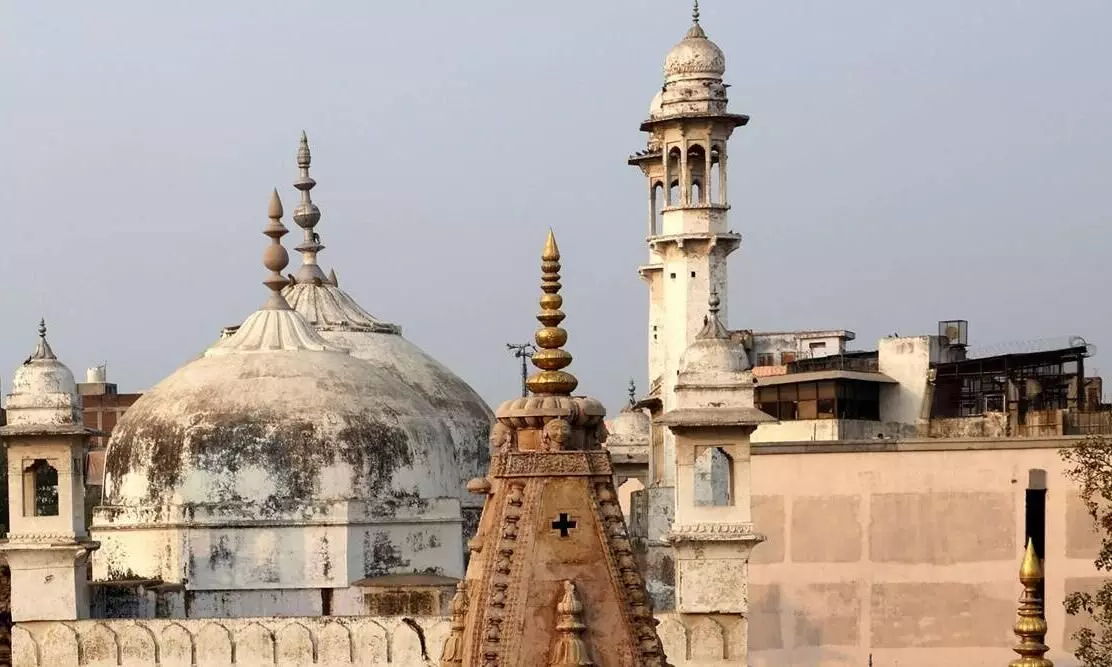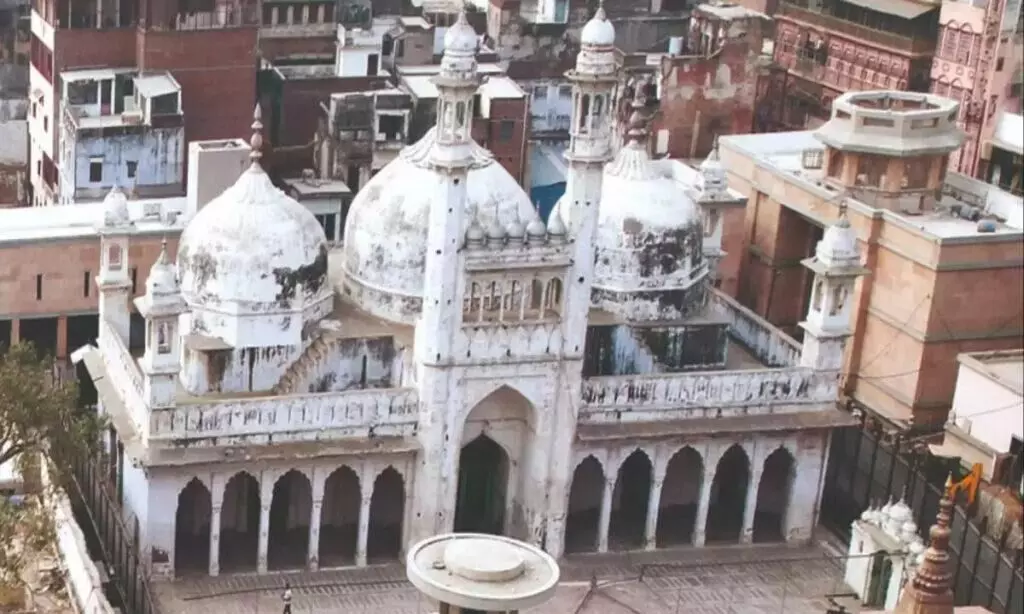
Gyanvapi: reminiscent of Babri model
text_fieldsThe Supreme Court has stayed till Wednesday the move to conduct a scientific survey, including excavation, to inspect whether the Mughal-era Gyanvapi Masjid in Varanasi, Uttar Pradesh, was built on the remains of an ancient temple. Following the Varanasi district court direction to the Archaeological Survey of India to conduct the survey last Friday, the ASI officials had started the work at 7 am on Monday when the Supreme Court stopped it until Wednesday 5 pm. The bench consisting of Chief Justice DY Chandrachud, and Justices JB Pardiwala and Manoj Mishra said that the mosque committee was being given 'a breathing time' to approach the Allahabad High Court against the district court verdict. The case started with four women petitioners approaching the Varanasi district court demanding that the walls and domes of the mosque be subjected to archaeological inspection while the arguments and court cases were ongoing regarding the claimed presence of a shiv linga in the fountain of the water reservoir (Wudu khana) where people who come for namaz have ablution. The Varanasi district court heard the case and ordered the survey on Friday, July 21 at 4.30 pm. But even a copy of the order was not made available to the lawyer of the Masjid Committee whose lawyer Huzefa Ahmadi told the Supreme Court that the authorities showed undue haste to carry out the order without giving them an opportunity to submit a counter argument. Accepting this, the Supreme Court ordered the survey to be suspended and let the Masjid Committee file an appeal in the Allahabad High Court.
After the demolition of the Babri Masjid in 1992 and the three-decade-long legal battle that followed, the construction of the Ram temple in Ayodhya is now progressing, and with this the claim over the Mathura and Kashi mosques, which were previously on the Sangh Parivar agenda, is gaining momentum. Following the Gyanvapi case, it is clear that apart from raising the issue politically, efforts to achieve the goal through legal proceedings are also underway. The sangh parivar's claim that the Gyanvapi mosque was built on the remains of an ancient temple is reminiscent of their similar claim on the Babri Masjid. Even if we look at the methods of litigation on the new mosque-mandir dispute, there are parallels with the Babri template. Women petitioners Rekha Pathak, Manju Vyas, Sita Sahu and Lakshmi Devi filed a court case in August 2021 demanding that they be given unfettered access to the sacred Maa Shringar Gauri Sthal, the seat of Hindu deities for worship inside the Gyanvapi complex. On April 8, 2022, Varanasi Senior Division Civil Judge Ravikumar Diwakar ordered that a court-appointed commission conduct a survey of the Kashi Vishwanath Temple-Gyanvapi Masjid complex and submit its video report to the court. It was when this survey, which started the following month, was about to end that on May 16, the fountain in the reservoir for ablution was claimed to be a shiv linga.
Although on October 14 last year, the previous complainants had approached the Varanasi district court seeking a scientific survey and carbon dating of the shiv linga found in the temple's reservoir, that plea was rejected. They then approached the Allahabad High Court. On May 12, the complainants' demand was accepted and a 'scientific survey' was ordered. The High Court directed that the survey be under the supervision of the Varanasi district judge and the ASI officials should appear before the trial judge on May 22 and take necessary instructions. However, the Supreme Court ruled that the High Court's directive should not be implemented for the time being and has sought the opinion of the central and UP governments on the appeal of the mosque committee which approached the court against it. It is during the pendency of this case that the Varanasi court ordered a survey covering excavation of other parts of the mosque than the protected water reservoir area. The petitioners' contention is that through the survey, shiv lingas and idols like those found earlier inside the mosque could be found. The Sangh Parivar reckons that after a judgement is given in the matter of the shiv linga, Gyanvapi can be made to traverse the same legal route as that of the Ram idol which was recognised as a legal personality with rights to property. The move to survey the entire mosque complex is the first step to that. Everyone is looking forward whether the intervention of the Supreme Court would be instrumental in dealing with the matter from the legal perspective independently and impartially.

























